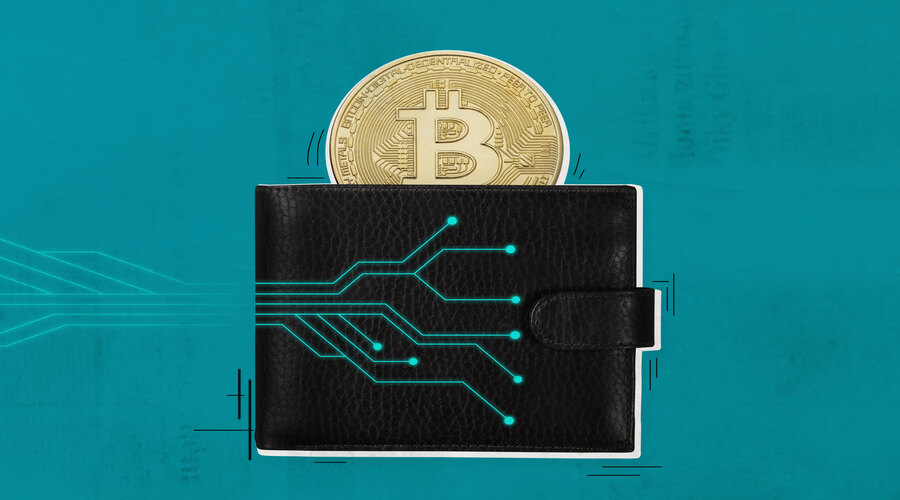Introduction
Cryptocurrency wallets play a crucial role in facilitating secure storage and management of digital assets for cross-border payments. In this article, we will explore the significance of cryptocurrency wallets in cross-border transactions. We will discuss the types of wallets, their features, and the importance of wallet security in ensuring the safe transfer of funds across borders.
Understanding Cryptocurrency Wallets
Cryptocurrency wallets are digital tools that allow individuals to store, manage, and transact with their cryptocurrencies. These wallets securely store the cryptographic keys needed to access and transfer the funds associated with the stored cryptocurrencies. In the context of cross-border payments, cryptocurrency wallets serve as a secure repository for the digital assets involved in the transaction process.
Types of Cryptocurrency Wallets
There are several types of cryptocurrency wallets, each offering unique features and levels of security:
- Hot Wallets: Hot wallets are connected to the internet, enabling convenient access to cryptocurrencies for frequent transactions. They are suitable for day-to-day usage but are more vulnerable to online threats.
- Cold Wallets: Cold wallets, on the other hand, are offline wallets that store cryptocurrencies offline, offering enhanced security. Cold wallets are typically used for long-term storage and are not directly connected to the internet, reducing the risk of hacking and unauthorized access.
- Hardware Wallets: Hardware wallets are physical devices that store cryptocurrencies securely. They provide an added layer of protection by keeping the private keys offline and requiring physical authentication to access the stored assets.
- Mobile Wallets: Mobile wallets are smartphone applications that enable users to manage their cryptocurrencies on the go. These wallets offer convenience and accessibility, allowing users to send and receive funds anytime and anywhere.
- Web Wallets: Web wallets operate through web browsers and provide a user-friendly interface for managing cryptocurrencies. They offer accessibility and ease of use, but users must exercise caution and ensure the security of their online accounts.
- Paper Wallets: Paper wallets involve printing the private keys or QR codes on paper for offline storage. While paper wallets offer an extra layer of security by being offline, users must keep the physical copies safe from damage or loss.
Security Features of Cryptocurrency Wallets
Cryptocurrency wallets implement various security features to safeguard the stored assets:
- Encryption: Wallets encrypt sensitive information to protect private keys and transaction data from unauthorized access.
- Two-Factor Authentication (2FA): Wallets often support 2FA, adding an extra layer of security by requiring users to provide a second authentication factor, such as a unique code generated on a mobile device.
- Multi-Signature Authentication: Some wallets offer multi-signature functionality, requiring multiple authorized signatures to approve a transaction, enhancing security and preventing unauthorized transfers.
- Hierarchical Deterministic (HD) Wallets: HD wallets generate a new unique address for each transaction, enhancing privacy and reducing the risk of address reuse.
Importance of Wallet Security in Cross-Border Payments
Wallet security is paramount in cross-border payments to ensure the safe transfer of funds across borders. With the increasing adoption of cryptocurrencies for cross-border transactions, it becomes crucial to protect the digital assets involved. Compromised wallets can result in the loss of funds, identity theft, and other cybercrimes. Robust wallet security measures, such as strong passwords, encryption, and regular software updates, are essential to mitigate risks and safeguard the assets during cross-border transactions.
Hot Wallet vs. Cold Wallet
Hot wallets and cold wallets offer different security trade-offs. Hot wallets provide convenience and quick access for frequent transactions but are more susceptible to online attacks. Cold wallets prioritize security by storing cryptocurrencies offline, protecting them from online threats but requiring additional steps to access and transfer funds. The choice between hot and cold wallets depends on individual needs, risk tolerance, and the frequency of cross-border transactions.
Best Practices for Secure Wallet Usage
Adopting best practices is crucial for maintaining wallet security in cross-border payments:
- Use Strong Passwords: Create complex and unique passwords for wallet access and avoid reusing passwords across different platforms.
- Enable Two-Factor Authentication (2FA): Enable 2FA to add an extra layer of security to wallet access.
- Keep Wallet Software Updated: Regularly update wallet software to benefit from the latest security enhancements and patches.
- Backup Wallets Securely: Regularly backup wallet information and store backups in secure, offline locations to prevent data loss.
- Exercise Caution with Online Interactions: Be vigilant against phishing attempts, avoid clicking on suspicious links or downloading untrusted files that could compromise wallet security.
Backup and Recovery Options

Wallet users should prioritize backup and recovery options to protect against data loss and potential wallet failure. Wallets often provide backup seed phrases or private key backups that allow users to recover their wallets and funds in case of device loss, damage, or theft. Safely storing and maintaining these backup options are essential for wallet security and the protection of cross-border payment assets.
Multi-Signature Wallets for Enhanced Security
Multi-signature wallets require multiple authorized signatures to approve a transaction. This feature adds an extra layer of security, as multiple parties must validate and authorize transfers. In the context of cross-border payments, multi-signature wallets can be beneficial for businesses, allowing multiple individuals or departments to oversee and approve cross-border transactions, reducing the risk of unauthorized transfers.
Hardware Wallets: Physical Security for Digital Assets
Hardware wallets provide an additional level of security by storing private keys offline in a physical device. These devices are specifically designed to secure cryptocurrencies and facilitate secure cross-border transactions. Hardware wallets offer protection against malware, phishing attacks, and other online threats, making them a preferred choice for those seeking maximum security for their cross-border payment assets.
Mobile Wallets: Convenience and Accessibility
Mobile wallets offer convenience and accessibility for managing cryptocurrencies on the go. With mobile wallet applications, users can easily send and receive funds, monitor transactions, and access their digital assets from their smartphones. Mobile wallets are particularly useful for individuals who frequently engage in cross-border transactions and require immediate access to their funds.
Web Wallets: User-Friendly Cross-Border Payment Solutions
Web wallets provide a user-friendly interface accessible through web browsers, allowing users to manage their cryptocurrencies without the need for dedicated applications or hardware devices. Web wallets offer convenience, as they can be accessed from any device with an internet connection. However, users must exercise caution and ensure the security of their online accounts by using strong passwords, enabling 2FA, and employing other recommended security practices.
Paper Wallets: Offline Storage for Added Protection
Paper wallets involve printing the private keys or QR codes on paper for offline storage. This method ensures the private keys are never exposed to online threats since the information remains physically offline. Paper wallets provide an added layer of protection against hacking or unauthorized access. However, users must handle the physical copies with care, keeping them in secure locations to prevent loss, damage, or unauthorized access.
The Role of Cryptocurrency Wallets in Cross-Border Remittances
Cryptocurrency wallets play a crucial role in cross-border remittances, allowing individuals to send and receive funds across borders quickly, securely, and cost-effectively. Wallets enable users to store their preferred cryptocurrencies, convert them to local currencies when necessary, and initiate cross-border transactions with ease. The secure storage and management of digital assets in wallets ensure the smooth flow of funds in cross-border remittance processes.
Integration of Wallets with Cross-Border Payment Platforms
Cryptocurrency wallets can be integrated with cross-border payment platforms to enhance the efficiency and user experience of transactions. Integration allows users to seamlessly transfer funds between wallets and payment platforms, enabling swift currency conversions and facilitating cross-border payments. This integration streamlines the entire payment process, from wallet management to fund transfers, making cross-border transactions more accessible and user-friendly.
Regulatory Considerations and Compliance
As the adoption of cryptocurrency wallets in cross-border payments grows, regulatory frameworks are being developed to address potential risks and ensure compliance. Governments and regulatory bodies are focusing on consumer protection, financial stability, and anti-money laundering measures in the context of cryptocurrency wallet usage. It is important for wallet users to stay informed about relevant regulations and compliance requirements to ensure the legality and security of their cross-border transactions.
Future Developments in Wallet Technology
The field of cryptocurrency wallets continues to evolve, with ongoing advancements and innovations in wallet technology. Future developments may include enhanced security features, integration with emerging technologies such as blockchain interoperability protocols, and improved user interfaces for seamless cross-border payment experiences. As the technology progresses, cryptocurrency wallets are expected to become more user-friendly, secure, and tailored to the specific needs of cross-border transactions.
Conclusion
Cryptocurrency wallets play a crucial role in the secure storage and management of digital assets for cross-border payments. From hot wallets to cold wallets, hardware wallets to mobile wallets, each type offers its own set of features and security levels. By prioritizing wallet security, adopting best practices, and leveraging the appropriate wallet type for individual needs, users can ensure the safe and efficient transfer of funds in cross-border transactions. As the technology and regulatory landscape continue to evolve, cryptocurrency wallets are poised to play an increasingly significant role in shaping the future of cross-border payments.






